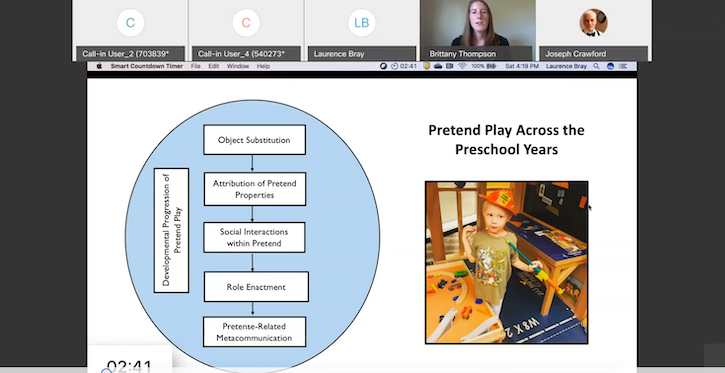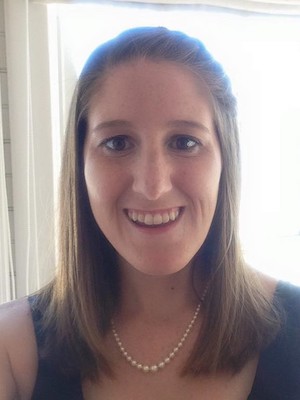
The 2020 Three Minute Thesis competition took place online.
Brand-new George Mason University PhD Brittany Thompson had no problems delivering a three-minute talk on her research, “Pretend Play Across the Preschool Years,” in early May. She had already completed and defended her dissertation in applied developmental psychology.
Thompson was the first place winner of this year’s Three Minute Thesis® (3MT) competition, which includes a $1,000 award. She was one of 10 finalists competing remotely on May 9.
The annual research communication competition has Mason doctoral students distill their research into short talks with one visual aid for a non-specialist audience. The twist in 2020 competition was, of course, the coronavirus pandemic, and everything moving online.

Brittany Thompson. Photo provided.
“Despite the difficult circumstances, all 10 selected 3MT® doctoral competitors decided to participate through our virtual event, and all the presentations were fantastic,” said Laurence Bray, associate provost for graduate education, who coordinates the event. “It was refreshing to listen to our students’ work, passion and success through a glimpse of their research.”
The virtual format was welcomed by some of the competitors, including Thompson, who also defended her dissertation online in April.
“If anything, it felt a little easier than commuting to Mason on a Saturday—I live an hour away—and giving the presentation in person,” said Thompson, who lives in Howard County, Maryland.
Second place winner and bioengineering PhD candidate Syeda Khadija Zaidi-Rashid did find the move to online challenging but not without benefits.
“I tend to use gestures as I speak, which wasn’t something that can comfortably be done in front of a screen,” said Zaidi-Rashid, who spoke on the topic “Reaching into the Pocket of Rocket Science: Modifying Transport Analysis to Arm Motor Control.” “Not being able to read the audience was not ideal, but it still felt exciting to be part of the competition. I think I was less nervous that I would’ve been otherwise—and my six-month-old son also got to hang out under my desk while I participated.”
Both competitors see the advantages of practicing their communication skills and the benefits of sharing their work.
“Hearing about all the research the other graduate students are working on was amazing, and it was a great way to practice talking about my own research in a clear and concise way,” said Thompson.
“It’s a common graduate school experience for friends and family to often not really know what our research is about,” said Zaidi-Rashid. “I thought it would be a great way to practice explaining my research and why I find it exciting in casual conversation.”
Zaidi-Rashid was awarded $750 for second place. The third place was a tie between criminology, law and society doctoral student Kate Doyle Feingold, who spoke on “Teaching Youth Their Rights: A Randomized Controlled Trial,” and public policy PhD student Angela Gill, who talked about “Puppetmasters: The Drivers and Consequences of U.S. Strategic Choice Regarding Regime Change.” Both received $500.
Judging the competition was a combination of scientific community members and Mason faculty and staff.
Originating in 2008 at Australia’s University of Queensland, 3MT competitions now take place annually at more than 900 universities across 85 countries.
“I am so proud of all of our graduate students for finishing strong in what we can call an unusual spring semester,” said Bray.
